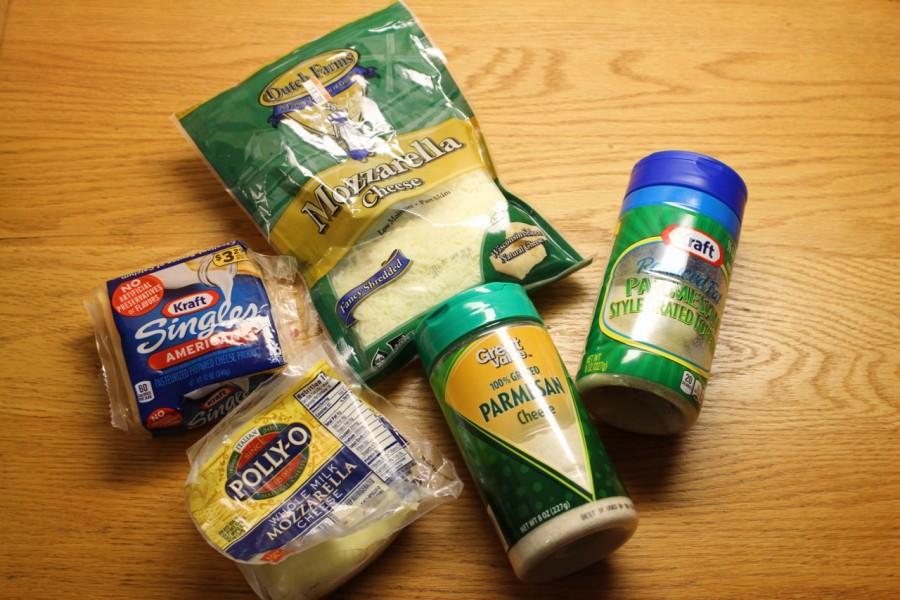Wait, Your Cheese Is Actually Wood Pulp?
The cheese you buy at supermarkets may not be 100% real cheese.
February 26, 2016
The cheese on your pasta and in your salad may not be cheese at all. Bloomberg News conducted an investigation that revealed that several varieties of popular grated parmesan cheese labeled “100% real cheese” contain nearly 9% cellulose, an additive made from wood pulp.
Bloomberg’s investigation was spurred in 2013 by an FDA report on Pennsylvania-based cheese manufacturer Castle Cheese, Inc. The report stated that Castle’s Market Pantry “100% Parmesan Cheese” sold at Target actually did not contain any parmesan cheese at all.
The FDA report also stated that Castle was made aware that their facilities contained traces of hazardous bacteria, yet continued to produce cheeses without taking the necessary precautions. Students and cheese fans expressed disappointment in the company’s behavior.
“It’s horrible that so many food companies that are built on the premise of trust continually lie to their consumers every day,” said Steinhardt senior Jessica Grant, who is studying Nutrition and Global Public Health.
Grant is not the only consumer appalled by the contents of her parmesan cheese. Lawsuits have been filed against both Walmart and Kraft regarding the mislabeling of their grated parmesan cheese products. The president of Castle Cheese Inc., Michelle Myrter, is facing federal criminal charges that could result in up to one year in prison and a $100,000 fine.
Stern junior Maya Bakhai, president of NYU’s Cheese Club, has long been aware of the suspicious practices behind the production of grocery store cheese.
“Only one third of cheese has to actually be cheese in order to classify as cheese according to U.S. standards,” Bakhai said. “So who knows what’s in our cheeses? Perhaps Kraft singles can be renamed to ‘Kraft cheese elements,’ and that way Americans aren’t fooled into thinking they are eating cheese when they really aren’t.”
She suggested purchasing cheese from local sources, where the production process is more transparent.
“Any local market is good to buy cheese from,” Bakhai said. “As a student, I think the best place to go is East Village Cheese. Nobody in NYC should be buying Kraft cheese.”
Grant pointed out the fact that Castle’s story could be indicative of a larger problem with our food.
“It’s as if consumers have to investigate in order to find the truth, and that is something that I am continually learning,” Grant said. “Whenever I hear stories like this, I think, ‘How many other things are going on that I don’t know about?’ There are so many lies surrounding our food and its health.”
Negative reports like Bloomberg’s may severely discourage consumers, and, in many cases, even alter their overall eating habits. CAS freshman Sinduja Sriskanda said she will reconsider her dairy consumption.
“Upon hearing this news, I will be more careful with the dairy products I eat, especially those provided by NYU,” Sriskanda said. “I’m saying goodbye to the days when I would put cheese and sriracha on every meal I ate in the dining halls.”
Email Taylor Rogers at [email protected].






















































































































































